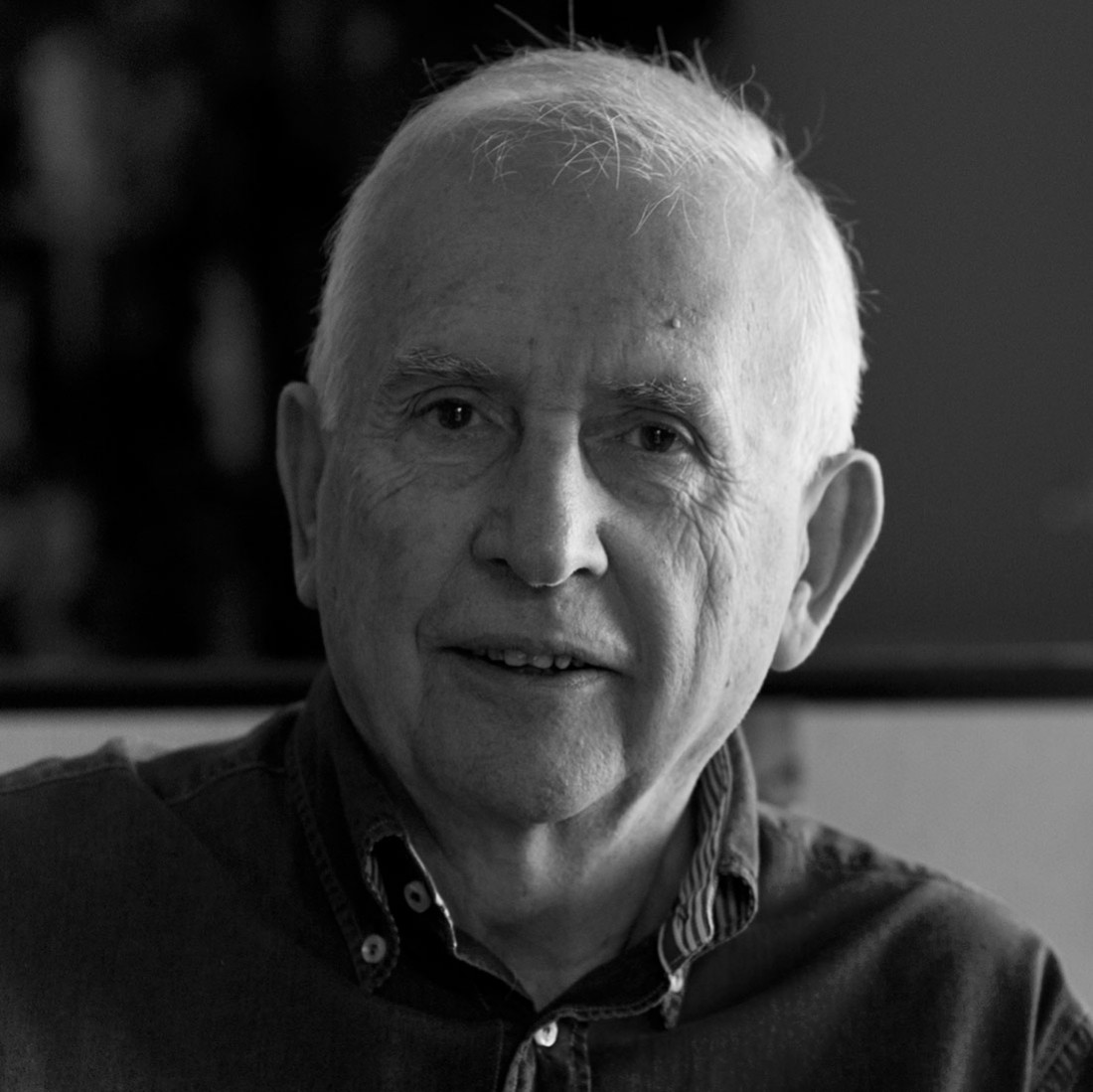Hugh Mackay
Hugh Mackay, once again you have brought us a book that invites us to grapple with fundamental concepts that determine how we make sense of ourselves and our society. Last year you spoke to a packed tent about The Art of Belonging. Welcome again with your newest book Beyond Belief. Can you tell us what motivated you to address this particular topic?
Two things. First, as a social researcher, I was intrigued by the apparent contradictions in Australians’ current attitudes and behaviour towards religion. 61 percent ticked “Christian” in the last Census, but only 8 percent attend church weekly (15 percent once a month or more). Yet, while church attendance has been going through the floor, enrolment at church schools has been going through the roof. And 88 percent of non-churchgoers say they like having a church in their local neighbourhood. All this against the background of sixty-eight percent of Australians saying they believe in God or “some higher power”. All this is irresistible stuff for a researcher!
Second, as a social psychologist, I have long felt that, in societies like ours, we do ourselves no favours by concentrating so hard on our differences, and this is nowhere more evident than in differences of belief – especially religious belief. Beliefs don’t only get in the way of our sense of social cohesion; they also often get in the way of faith. (Beliefs tend to be dogmatic, static, institutionally imposed and likely to imbue the believer with feelings of confidence bordering on smugness, whereas faith is more subjective, dynamic, exploratory and tentative – it demands humility and it equips us to live with doubt and uncertainty, rather than removing it.) So my second goal in writing the book was so say: what common dreams of a better world do we all share; what things do believers and non-believers (or agnostics) have in common when it comes to a spiritual life?
What do people actually mean when they refer to God? I like this question. It seems to be fundamental to your thesis. Is that an accurate reading?
God, like faith is a product of the imagination. We can’t see, touch or taste God – we can only imagine (or not imagine) God. So it’s not surprising that different people can mean many different things when they say “God” – creator, judge, ruler, heavenly father, imaginary friend, or, as is increasingly the case, a non-supernatural spirit – the spirit of love – within us and among us (the kind of thing Carl Jung meant when he wrote of “the God within”). God as spirit, of course, does away with questions of gender, creation, or the so-called “problem of pain” (why would a God permit so much pain in the world?). If we think of God as the spirit of lovingkindness within and among us, then God is something that comes from us, rather than to us. But many people wouldn’t be comfortable calling that spirit “God”. Others would say (as I do in the book), that you could talk about the “divine” aspects of humanity, without there needing to be a “divinity”.
In terms of religious practice, you seem to endorse Christian values, at the same time adopting a rationalist perspective of doubt. Can you tell us more about your personal belief system?
I have previously described myself as a “Christian agnostic” by which I mean that I subscribe to the teachings of Jesus (which are essentially about how to live together in peace and harmony; how to redefine the meaning of “neighbour”; how to be loving, in the sense of kind and compassionate, as a way of life), but remain agnostic about supernatural questions. I don’t find the need to resolve the “out-there” God question at all. As Bertrand Russell, and many others, put it: if you can’t prove something, then you certainly can’t disprove it either. So I aim to live as a Christian, but I do not believe many of the things other Christians believe (and many of them would disown me as “Christian”!).
As with your other books your research for this book is based on interviews with a broad spectrum of Australians, who represent many different points of view. What do these interviews tell us about spiritual practice as a contemporary Australian community?
It’s very easy to find ex-churchgoers in Australia, so a lot of the interviews were about why people stopped going to church. But no one is untouched by religion – either through contact with a church or church school, or through its influence in shaping our cultural heritage. Today, more people seek spiritual enlightenment, or the nurture of their spiritual dimension, away from the church than in it. That might take the form of yoga (itself a Hindu spiritual practice, of course), or mindfulness training (a Buddhist religious practice), meditation, pilgrim walks, etc, etc. There’s a significant movement in the direction of being “SBNR” – spiritual but not religious – and of course that is part of a very rich mystical tradition.
From your research you state that 22% of Australians reported ‘no religion’ whereas 42% of New Zealanders reported the same. What do you think contributes to this marked difference, given that, on the surface at least; there appear to be so many similarities between these countries?
That’s easy to answer. New Zealand redesigned their census form so that “no religion” went from the bottom of the list to the top. In our own 2016 census, we have done the same thing, so you can expect the “donkey vote” effect to operate here, as well – especially as various lobby groups were actively urging people to tick “no religion” this time. (Unprecedented, by the way, to have propaganda about how to fill in the census form!)
You argue that “the leap to doubt-free atheism is at least as bold as the leap to doubt-free theism”. What do you mean by this?
As I said in response to that earlier question, if something can’t be proved, it can’t be disproved either. So convinced atheists have taken the same non-rational leap as convinced theists. Of course, to declare yourself an atheist requires you to be able to imagine/describe what you are not believing in – agnostics don’t have to take that step.
Although you offer possible explanations, supported by evidence, you state that: “Answers close off the question; sometimes – in the spiritual life, and indeed in personal relationships – it’s better to stay with the question. Why pretend to know the unknowable?” Why is it important to open rather than close dialogue on spiritual issues?
Life itself is a mystery. Human consciousness is a mystery, we might learn how we got here, but we’ll never learn why. It seems to me both healthier and more fun to stay with the mysteries – not to try to answer every question. Leaving some things open can be very good for us. Life itself is, after all, unpredictable, and humans are essentially non-rational creatures. So we’d do well to live with a bit of ambiguity, a bit of uncertainty, a bit of doubt.
When I was teaching in India I was surprised by how deeply people knew and engaged with the stories from the ancient Sanskrit texts. I understand how fundamentalist interpretations can sow the seeds of prejudice but do you think that the upside is a deep connection with language and our history?
Absolutely. Knowing our religious heritage (in Australia, it’s overwhelmingly Christianity) enriches our understanding of our culture, and the grand narratives of religion (creation, virgin birth resurrection, miracles, etc) survive across the millennia not because they are literally, historically true, but because they contain metaphorical truth. That’s where their power to inspire us comes from.
You reference Koenig’s findings: “that in the majority of studies, religious involvement is correlated with well-being, happiness and life-satisfaction” which also aligns with Seligman’s research in the field of positive psychology. Do you dispute these findings?
No, I don’t dispute these findings at all (though, in the interests of transparency, we should note that there are very similar positive correlations between these same health benefits and pet ownership). The research is compelling, but often overlooks what might be the single greatest contributor to these health benefits of faith – the powerfully therapeutic effect of belonging to a close-knit, mutually supportive faith community.
You have focused on our predominantly Christian heritage with less reference to other main religions. Australia is a multi-faith society; can you tell us why you chose this focus?
In terms of religious identification, Australia is overwhelmingly a Christian country. As I mentioned before, 61 percent of Australians identify as Christian, and there’s daylight between first and second on the list of religions we identify with. 2.5 percent are Buddhist, 2.2 percent Muslim. Our fastest-growing religion is actually Hinduism – though it’s still below 2 percent, it will probably pass both Islam and Buddhism in the next 20 years or so. (That’s already happened in NZ, where Hinduism is number 2 after Christianity.)
Finally, a trivial question. How do you like to spend your leisure time? What do you like to do on your days off?
Read, walk, listen to music, watch a movie. I’d die without music.
Thank you very much Hugh. Looking forward to catching up with you at the St. Albans’s Writers’ Festival.


